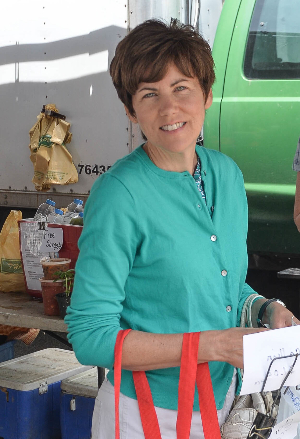
Whether appearing on a package of eggs in your grocery store or listed on a menu in your favorite restaurant, words like "free-range". "grass-fed", "natural", and "organic" are everywhere these days.
Many food labels can be confusing, so knowing what a food claim truly means is a great way to educate yourself about where your food comes from and how it has been processed. New food label claims arise regularly, so if you do come across a new phrase, take some time to do your own research and learn what it really means.
Below is a list of some common food claims.
Antibiotic-Free
"Antibiotic-Free" means thaty an animal was not given antibiotics during its lifetime. Other phrases to indicate the same approach include "no antibiotics administered" and "raised without antibiotics."
Cage-Free
"Cage-Free" means that the birds were raised without cages. What this doesn't explain is whether the birds were raised outdoors on pasture, if they had access to the outdoors, or if they were raised indoors in overcrowded conditions. If you are looking to buy eggs, poultry, or meat that was raised outdoors, look for a label that says "pastured" or "pasture-raised."
Fair Trade
The "fair trade" label means that farmers and workers, often in developing countries, have received a fair wage and worked in acceptable conditions while growing and packaging the product.
Free-Range
The use of the terms "free-range" or "free-roaming" are only defined by the USDA for egg and poultry production. The label can be used as long as the producers allow the poultry access to the outdoors so they are able to engage in natural behaviors. It does not necessarily mean that the products are cruelty-free, antibiotic-free, or that the animals spent the majority of their time outdoors. Claims defined by the USDA, but are not verified by third-oparty inspectors.
GMO-Free, Non-GMO, or No GMO's
Products can be labeled "GMO-free" if they are produced without being genetically engineered through the use of GMO's (genetically modified organisms). Genetic engineering is the process of transferring specific traits of genes from one organism into a different plant or animal.
Grain-Fed
Animals raised on a diet of grain are labeled "grain-fed." Check the label for "100 Percent Vegetatian Diet" to ensure the animals were given feed containing no animal by-products.
Grass-Fed
This means the animal was fed grass rather than grain. They should not be supplemented with grain, animal by-products, synthetic hormones, or given antibiotics to promote growth or prevent disease, although they may have been given antibiotics to treat disease. A "grass-fed" label doesn't mean the animal necessarily ate grass its entire life. Some grass-fed cattle are "grain-finished," which means they ate grain from a feedlot prior to slaughter.
Healthy
Foods labeled "healthy" must be low in fat and saturated fat and contain limited amounts of cholesterol and sodium. Certain foods must also contain at least 10 percent of vitamins A or C, iron, calcium, protein, or fiber.
Hormone-Free
The USDA has prohibited use of the term "hormone-free," but animals that were raised without added growth hormones can be labeled "no hormones administered" or "no added hormones." By law, hogs and poultry cannot be given hormones. If the products are not clearly labeled, ask your farmer or butcher to ensure that the meats you are buying are free from hormones.
Natural
Currently, no standards exist for this label except when used on meat and poultry products. USDA guidelines state that "natural" meat and poulty products can only undergo minimal processing and cannot contain artificial colors, artificial flavors, preservatives, or other artificial ingredients. However, "natural" foods are not necessarily sustainable, organic, humanely raised, or free of hormones and antibiotics.
Non-Irradiated
This label means that the food has not been exposed to radiation. meat and vegetables are sometimes irradiated to kill micro-organisms and reduce the number of microbes present due to unsanitary practices. No thorogh testing has been done to know if irradiated food is safe for human consumption.
Pasture-Raised
"Pasture-Raised" indicates that the animal was raised on a pasture and that it ate grasses and food found in a pasture, rather than being fattened on grain in a feedlot or barn. Pasturing livestock and poultry is a traditional farming technique that allows animals to be raised in a humane manner. The term is very similar to "grass-fed," thogh the term "pasture-raised" indicates more clearly that the animal was raised outdoors on a pasture.
Organic
All organic agricultural farms and products must meet the follwoing guidelines (verified by a USDA-approved independent agency):
- Abstain from the application of prohibited materials (including synthetic fertilizers, pesticides, and sewage sludge) for three years prior to certification and then continually throughout their organic license.
- Prohibit the use of genetically modified organisms and irradiation.
- Employe positive soil building, conservation, manure management, and crop rotation practices.
- Provide outdoor access and pasture for livestock.
- Refrain from antibiotic and hormone use in animals.
- Sustain animals on 100% organic feed.
- Avoid contamination during the processing or organic products.
- Keep records of all operations.
- If a product contains the "USDA Organic" seal, it means that 95 to 100 percent of its ingredients are organic. Products with 70 to 95 percent organic ingredients can stil advertise "organic" ingredients on the front of the package, and products with less than 70 percent organic ingredients can identify them on the side panel. Organic foods prohibit the use of hydrogenation and trans fats.
RBGH-Free or RBST-Free RBGH
Recombinant bovine growth hormone is a genetically engineered growth hormone that is injected into dairy cows to artificially increase their milk production. The hormone has not been properly tested for safety. Milk labeled "rBGH-free" is produced by dairy cows that never received injections of this hormone. Organic milk is rBGH-free. (rBST stands for recombinant bovine somatropin.)
Adapted from www.sustainabletable.com
copywrite Integrative Nutrition





